| | | | | | | Presented By Global X ETFS | | | | Axios World | | By Dave Lawler · Nov 03, 2022 | | Welcome back to Axios World. - I'm out of the rainforest and back in the Swamp — more precisely, a beautifully autumnal Washington, DC.
- Tonight's edition (1,919 words, 7 minutes) starts with a key climate question before looking at an attack on Imran Kahn, North Korea's latest launches, Ethiopia's peace pact and Israel's extreme right.
Situational awareness: The UN General Assembly just voted 185-2 to condemn the U.S. embargo of Cuba for the 30th year in a row, Axios' Ivana Saric reports. | | | | | | 1 big thing: Do rich countries owe a climate debt? | 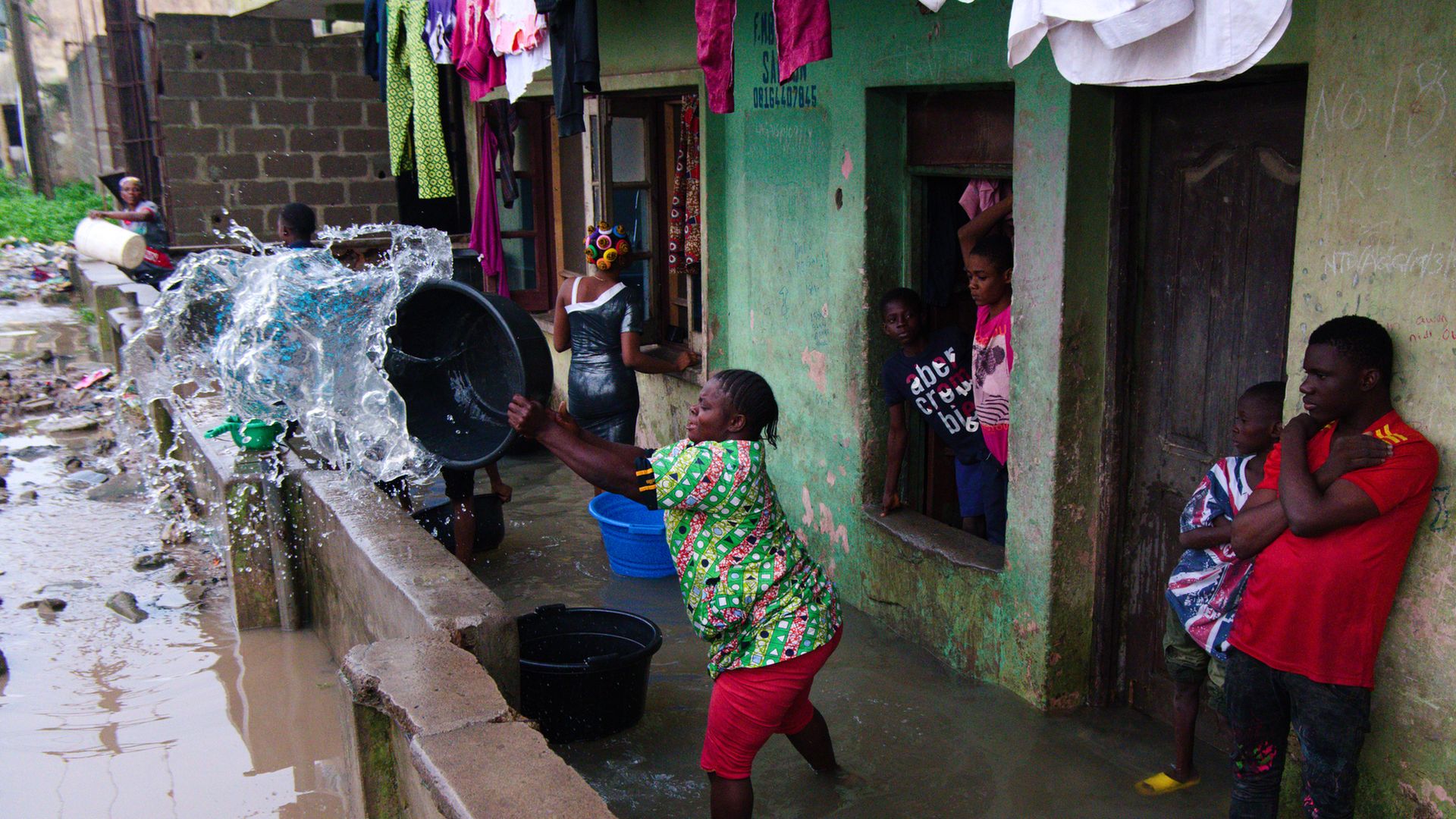 | | | A woman removes water from her flooded home in Lagos, Nigeria. Photo: Adeyinka Yusuf/Anadolu Agency via Getty Images | | | | The question of what the rich countries that contributed most to climate change might owe poorer ones now suffering the consequences — not just as a philosophical exercise, but in dollars and cents — looms over the upcoming COP27 climate summit. Why it matters: With world leaders and climate negotiators preparing to travel to Sharm el-Sheikh, Egypt, from Nov. 6-18, UN Secretary-General António Guterres today said "getting concrete results on 'loss and damage'" will be the summit's key "litmus test." - The issue has long bitterly divided developing countries on the front lines of climate change and developed ones like the U.S., which has historically avoided discussions of what are sometimes called "climate reparations," Axios' Andrew Freedman notes.
- This time around, Pakistan and Nigeria — which both suffered hundreds of deaths and billions in damage from devastating floods this year — will be among the countries trying to focus attention on climate-related compensation.
- "We do see a general acceptance that loss and damage must in some form be addressed," Egyptian climate negotiator Mohamed Nasr said ahead of the summit. "The difficulty, as usual, is in the details; how do we define and finance this?"
At previous summits, funding debates have centered on helping countries transition to cleaner energy and adapt to the effects of climate change, two topics that will also be on the agenda. - Yes, but: "If you're a pastoralist in Northern Kenya and your livestock get decimated by devastating droughts, or your home in Mozambique is destroyed by Cyclone Idai, these are not things that can be adapted to," notes Mohamed Adow, director of Power Shift Africa. "They are permanent losses for which you deserve to be compensated."
COP27 has been dubbed "The African COP" because the Egyptian hosts are focusing on the concerns of developing countries, particularly in Africa. - African nations and "African-descended populations" are often those "who are least responsible for climate change and who are suffering the most," Adrienne Hollis, vice president of environmental justice at the National Wildlife Federation, tells Axios.
- Africa has contributed around 3% of the world's cumulative CO₂ emissions, versus 25% for the U.S. and 18% for EU countries. But other than small island states, nearly all of the countries considered most vulnerable to climate change are in Africa.
State of play: The U.S. and EU have both said they're prepared to discuss loss and damage, but they haven't committed to any specific funding mechanism. - U.S. climate envoy John Kerry told the New Yorker, "We're embracing the fact that we have to come up with something." But he has also suggested this is the start of a multiyear conversation — hardly what developing countries want to hear.
- Between the lines: The midterms fall right at the beginning of COP27. Even if President Biden wanted to prioritize climate compensation for the developing world, a Republican-led House would be unlikely to fund it.
The bottom line: Loss and damage may play a more central role at COP27 than at any previous climate summit, but talking alone won't satisfy anyone. - As an official from Barbados put it this week: "We need actual money."
|     | | | | | | 2. Imran Khan shot; prime minister condemns attack | 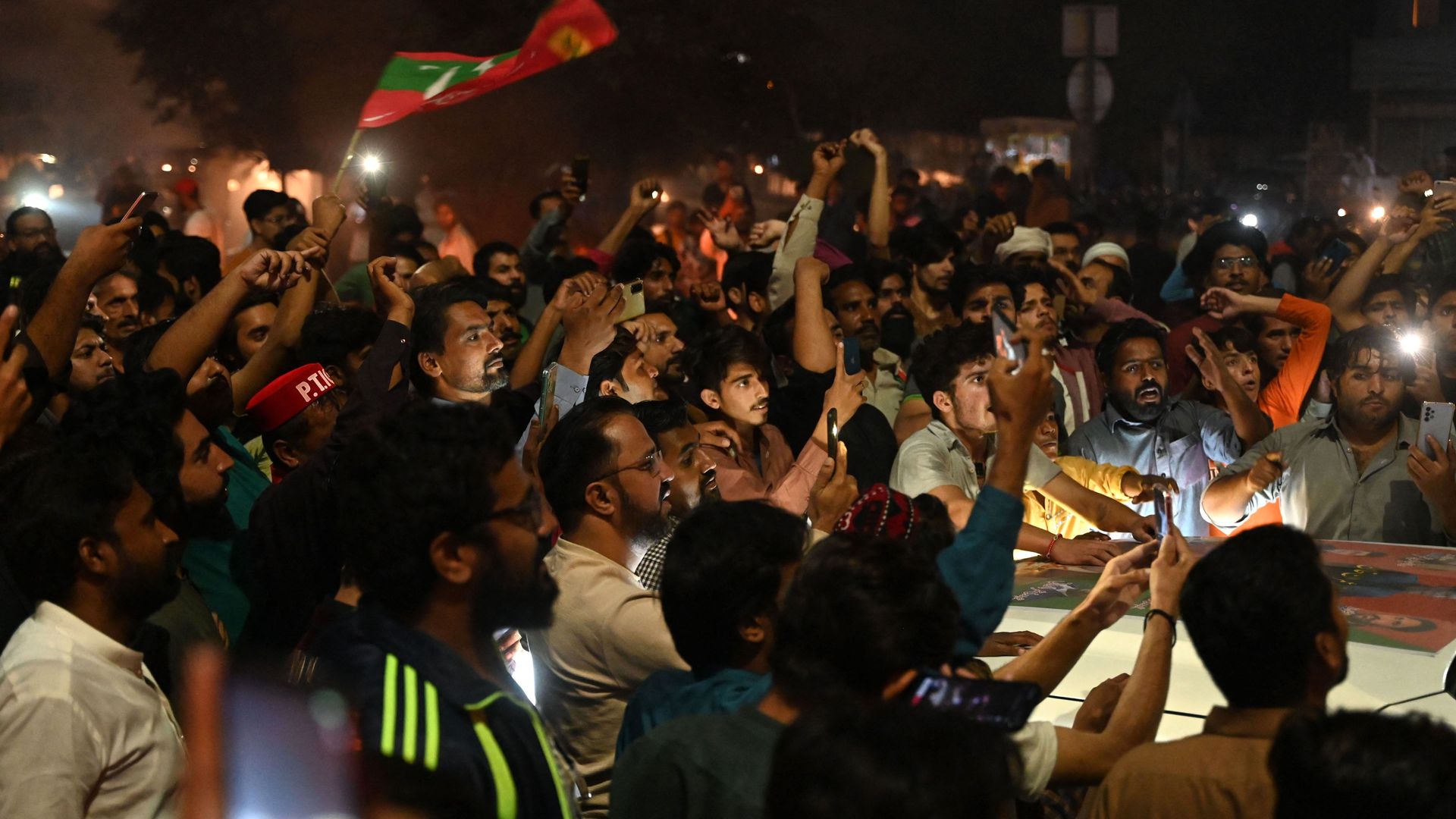 | | | Imran Khan's supporters gather outside the hospital where he was admitted in Lahore. Photo: Arif Ali/AFP via Getty Images | | | | Former Pakistani Prime Minister Imran Khan was shot in the leg and lightly injured in an apparent assassination attempt during a protest march today in the eastern city of Wazirabad. Driving the news: Senior members of Khan's party have claimed without evidence that top officials, including Prime Minister Shehbaz Sharif and Interior Minister Rana Sanaullah, were behind the attack, per WaPo. - Sanaullah called those allegations false, politically motivated and dangerous. "Please stop this, it will only invite more violence," he said.
- Sharif, who took power after Khan lost a no-confidence vote in April, has condemned the attack on his predecessor and called for an investigation.
- Police released a video of a man claiming to be the gunman saying he acted alone because there was loud music playing over the call to prayer during the march.
State of play: Khan began the march toward the capital Islamabad last week to demand early elections. - He has mobilized huge crowds with claims that he was removed from power in a U.S.-sponsored plot, and has broken a long-standing taboo by criticizing Pakistan's powerful military.
- Khan has been mired in legal proceedings as a result of his rallies and rhetoric. Pakistan's intelligence chief last week accused him of seeking improper favors from the military while in office, which he denied.
What to watch: Sharif insists elections won't be held until next year, but Khan and his base will likely continue to pile on the pressure. |     | | | | | | 3. North Korea testing more missiles than ever |  Data: CSIS Missile Threat, Axios; Chart: Jacque Schrag/Axios A day after firing off a record 23 missiles, North Korea today tested at least two short-range ballistic missiles and an intercontinental ballistic missile — though the ICBM test appears to have been a failure. Driving the news: The North Korean launches come as the U.S. and South Korea continue to conduct massive air exercises, which the allies agreed to extend in response to Pyongyang's provocations. - But it's part of a pattern, as our chart shows. With diplomacy frozen, the missile tests are keeping North Korea on President Biden's radar.
- North Korea's recent tests have set off air raid sirens in Japan and South Korea, and Seoul says one missile crossed the maritime border between North and South Korea on Wednesday for the first time.
What's next: The U.S. wants this issue brought before the UN Security Council tomorrow, but that's unlikely to lead to any joint action. One big remaining question is whether and when North Korea will proceed with its seventh nuclear test. |     | | | | | | A message from Global X ETFS | | Build a greener investment portfolio | | | 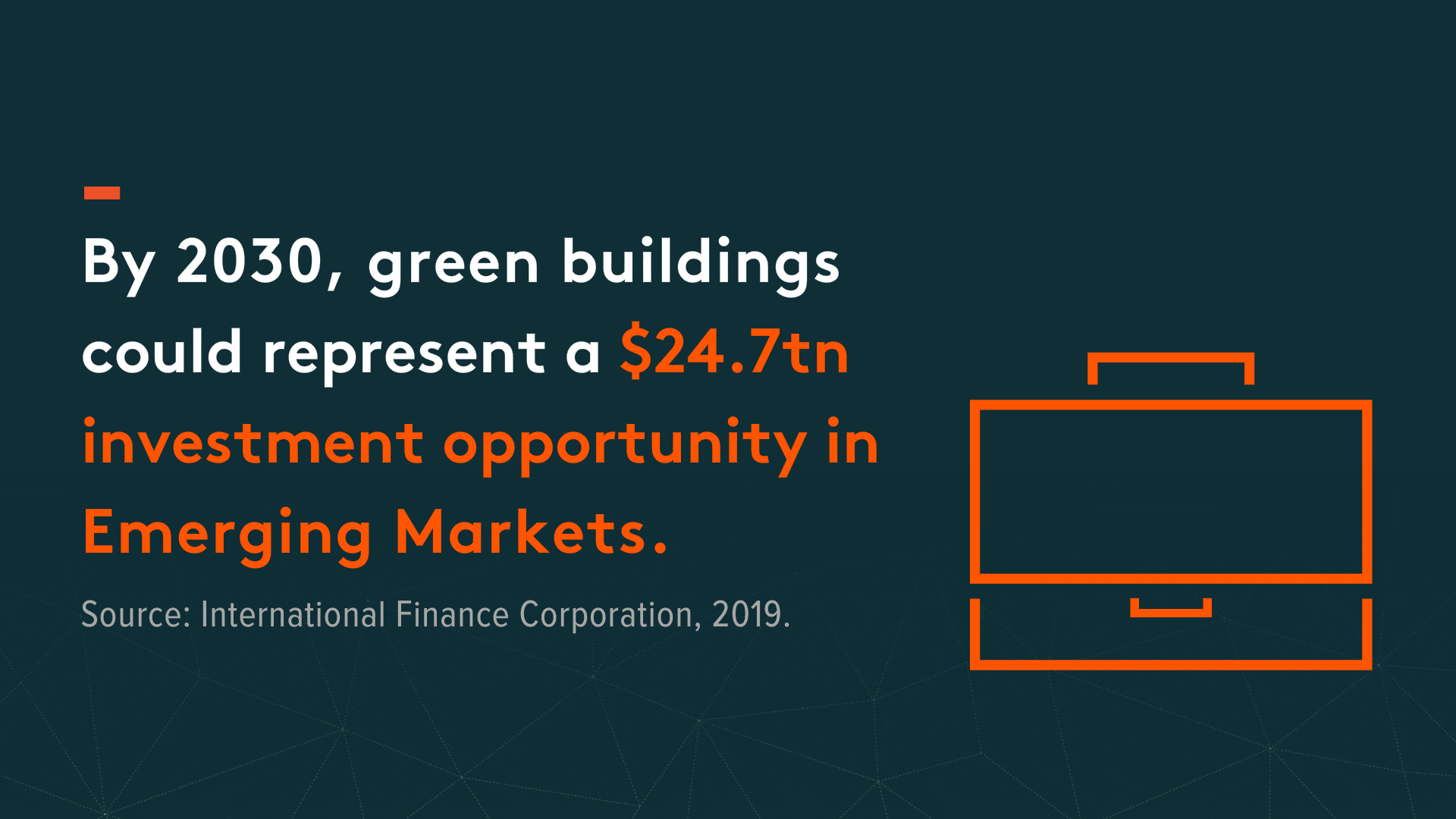 | | | | Government policies and private sector commitments to combat climate change are driving demand for more sustainable buildings. We recently explored the long-term investment case for companies involved in the development, management and technology powering green buildings. Learn more. | | | | | | Bonus: Where in the world? | 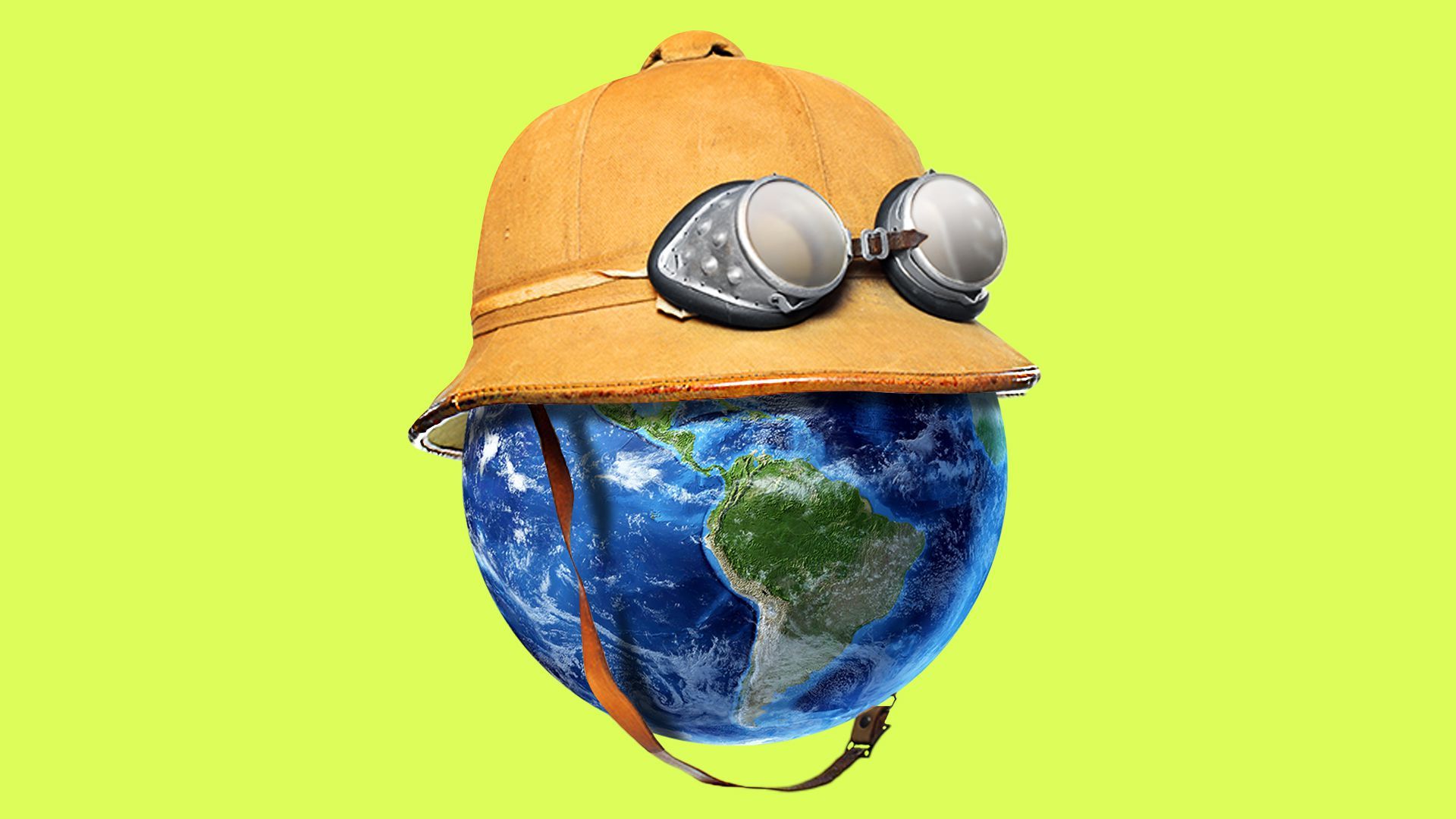 | | | Illustration: Natalie Peeples/Axios | | | | The bottom of the map is pretty empty. Only 14 countries lie on or below the Tropic of Capricorn, as opposed to the 96 that lie on or above its Northern Hemisphere equivalent, the Tropic of Cancer. Of those 14, only four lie entirely south of the Tropic of Capricorn — two tiny states in Africa, one country in Oceania, and one in South America (Hint: It's probably not the first one you'd think of.) - Can you name those four countries?
Scroll to the bottom for answers. |     | | | | | | 4. Rise of Israel's far right |  | | | Itamar Ben-Gvir addresses supporters at campaign headquarters in Jerusalem early on Nov. 2. Photo: Jalaa Marey/AFP via Getty Images | | | | Outgoing Israeli Prime Minister Yair Lapid called Benjamin Netanyahu today to congratulate his right-wing bloc for winning a clear majority in Tuesday's elections. Why it matters: Israel's longest-serving leader is set to reclaim the Prime Minister's Office one-and-a-half years after losing it, despite the fact that he's being prosecuted for corruption. One of the key factors in Netanyahu's triumph was his alliance with extreme right parties, which had their best-ever results, Axios' Barak Ravid writes. - For many years, Netanyahu kept his distance from the extreme right, especially Jewish supremacist politician Itamar Ben-Gvir, who was convicted in 2007 of supporting a terror organization and inciting racism.
- But support for Ben-Gvir's formerly fringe Jewish Power party has increased since the May 2021 Gaza war and recent high-profile attacks by Palestinians on Israelis.
- With a campaign focused on "law and order" and promises to implement the death penalty against terrorists, Ben-Gvir gained support among new constituencies, including from within Netanyahu's center-right base.
What's next: Ben-Gvir and his political partner Bezalel Smotrich, who has a history of racist remarks about Arab citizens of Israel, are both seeking senior posts in Netanyahu's Cabinet. - Ben-Gvir wants to be the minister of internal security, a post that would put him in charge of the Israeli police and policies around Jerusalem's holy sites, including the Al-Aqsa Mosque compound.
- Because Netanyahu will have to rely on the two extreme right politicians to pass laws to stop his corruption trial, they have significant leverage in the government formation process.
What to watch: The Biden administration is unlikely to engage with Ben-Gvir if he does get a senior post, two U.S. officials tell Barak. In other elections news... Denmark Prime Minister Mette Frederiksen secured a narrow majority in Tuesday's elections and is expected to remain in her post. - The center-left leader was forced to call an early election in part over her controversial decision to order the killing of some 17 million mink due to fears they were spreading COVID-19.
Brazilian President Jair Bolsonaro asked his supporters to stop blocking roads around the country as part of their protests over Luiz Inácio Lula da Silva's election victory. - Bolsonaro has not conceded defeat, but his chief of staff says the transition to Lula has begun.
|     | | | | | | 5. Deal reached to end Ethiopia's brutal civil war | 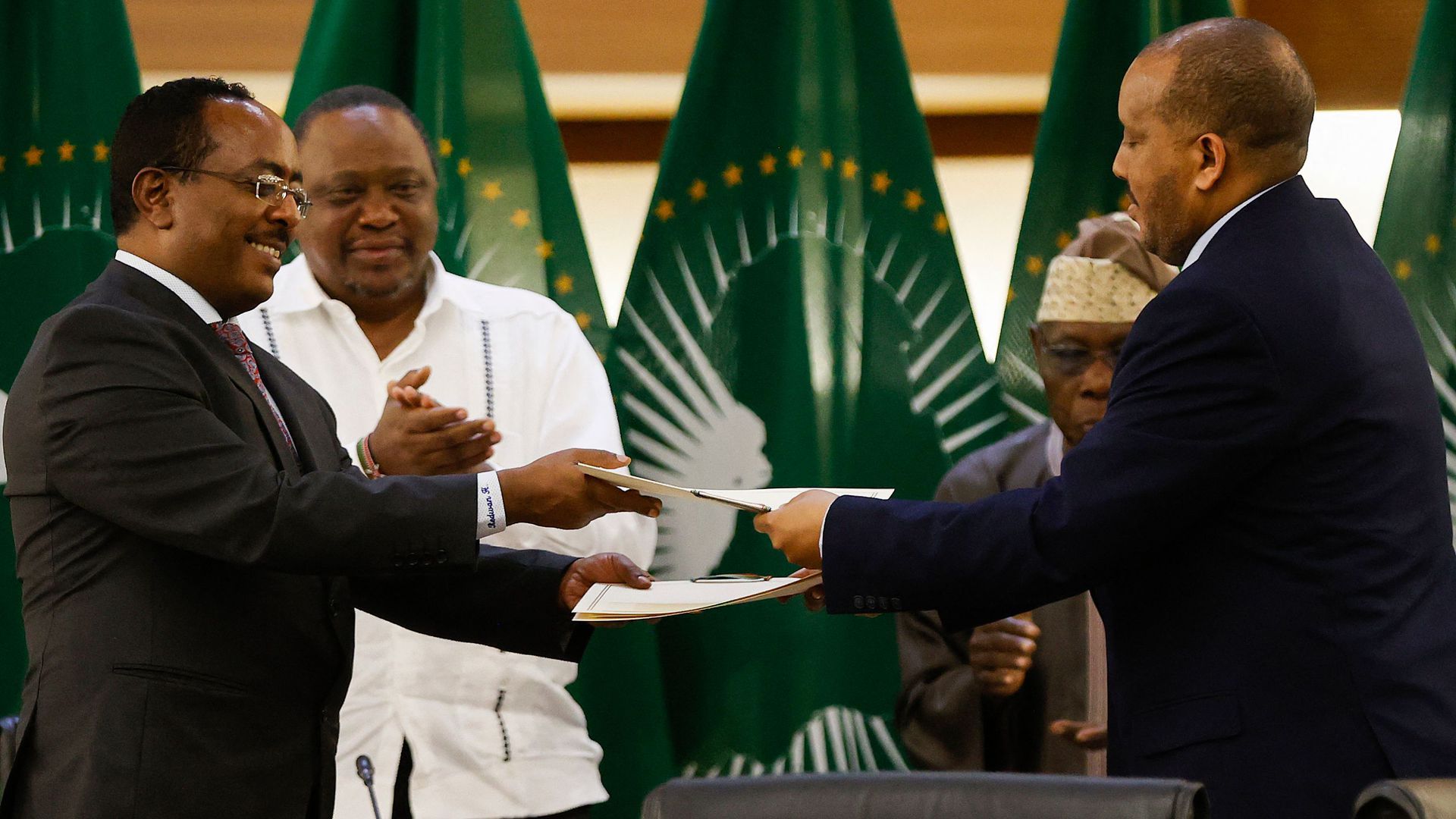 | | | Ethiopia government representative Redwan Hussein Rameto (left) and Getachew Reda, representative of the Tigray People's Liberation Front (TPLF) exchange documents after signing a peace agreement in Pretoria, South Africa, on Nov. 2. Photo: Phill Magakoe/AFP via Getty Images | | | | Ethiopia's government and Tigray forces agreed to a "cessation of hostilities" on Wednesday. Why it matters: If the African Union-mediated truce holds, it should end a nearly two-year war that has killed thousands of people, and offer hope for an end to one of the world's worst humanitarian crises. - It includes major concessions from the Tigray People's Liberation Front (TPLF) — which had been on the defensive in the latest round of fighting — including a commitment to disarm and respect Ethiopia's territorial integrity.
- "In the South Africa negotiations, 100% of the ideas Ethiopia has proposed have been accepted," Ethiopian Prime Minister Abiy Ahmed claimed today.
- AU mediator Olusegun Obasanjo said the deal also includes "unhindered access to humanitarian supplies," though the timing on that is unclear. Abiy's forces have been blockading Tigray for months, leading to fears of famine.
Yes, but: Neighboring Eritrea, which has fought alongside Ethiopia's army against the TPLF, was not a party to the agreement, nor were political or militia leaders from other regions of Ethiopia where the fighting has spread. - The Ethiopian military, the TPLF and Eritrean forces have all been accused of atrocities.
The bottom line: This is a big and somewhat unexpected breakthrough, but with so many warring parties and so little trust between them, the process of implementation will be fraught. - If the deal does hold, it will be a testament to the ability of the African Union, rather than UN or Western powers, to resolve conflicts on the continent.
|     | | | | | | 6. What I'm reading: Where a big climate deal went wrong | 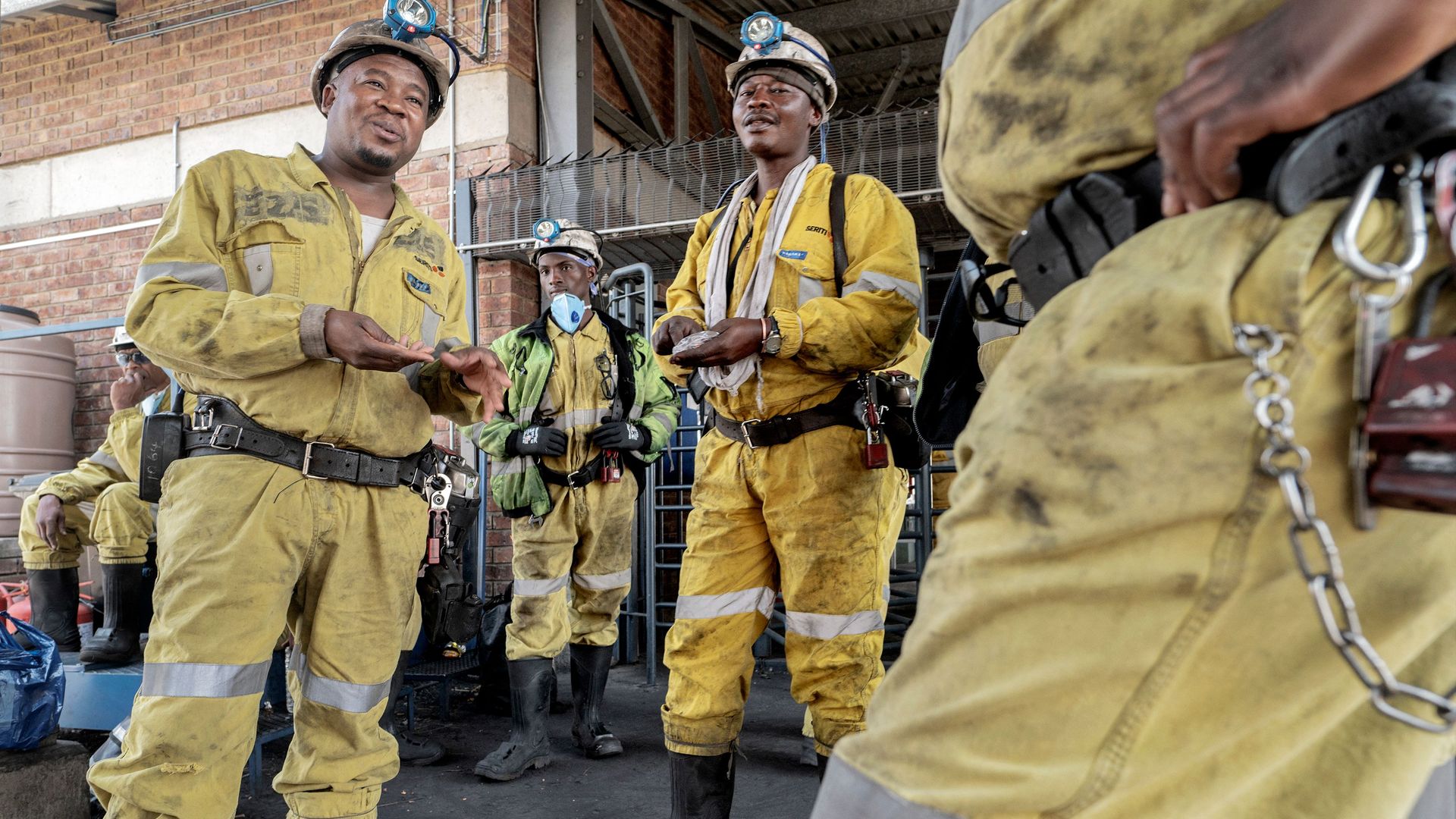 | | | Coal is going strong in Kendal, South Africa. Photo: Luca Sola/AFP via Getty Images | | | | One of the most heralded agreements at the last COP summit was for rich countries including the U.S. to contribute an initial $8.5 billion to spur South Africa's transition away from coal — which now accounts for 85% of its electricity — over five years. - Kerry called that deal "a pretty damn good template" for other countries.
Flash forward: It's not going great, the FT's David Pilling reports. - The politics are tricky. Coal mining is a big employer, and the mostly black-owned industry has close links to the ruling ANC. Meanwhile, the state-owned energy company is notoriously corrupt and hard to reform.
- The Western financing has been slow to arrive, covers only a fraction of the total costs, and often takes the form of loans, not grants.
- The model looks hypocritical at a time when European countries are turning back to coal — including importing some from South Africa.
|     | | | | | | 7. Stories we're watching | 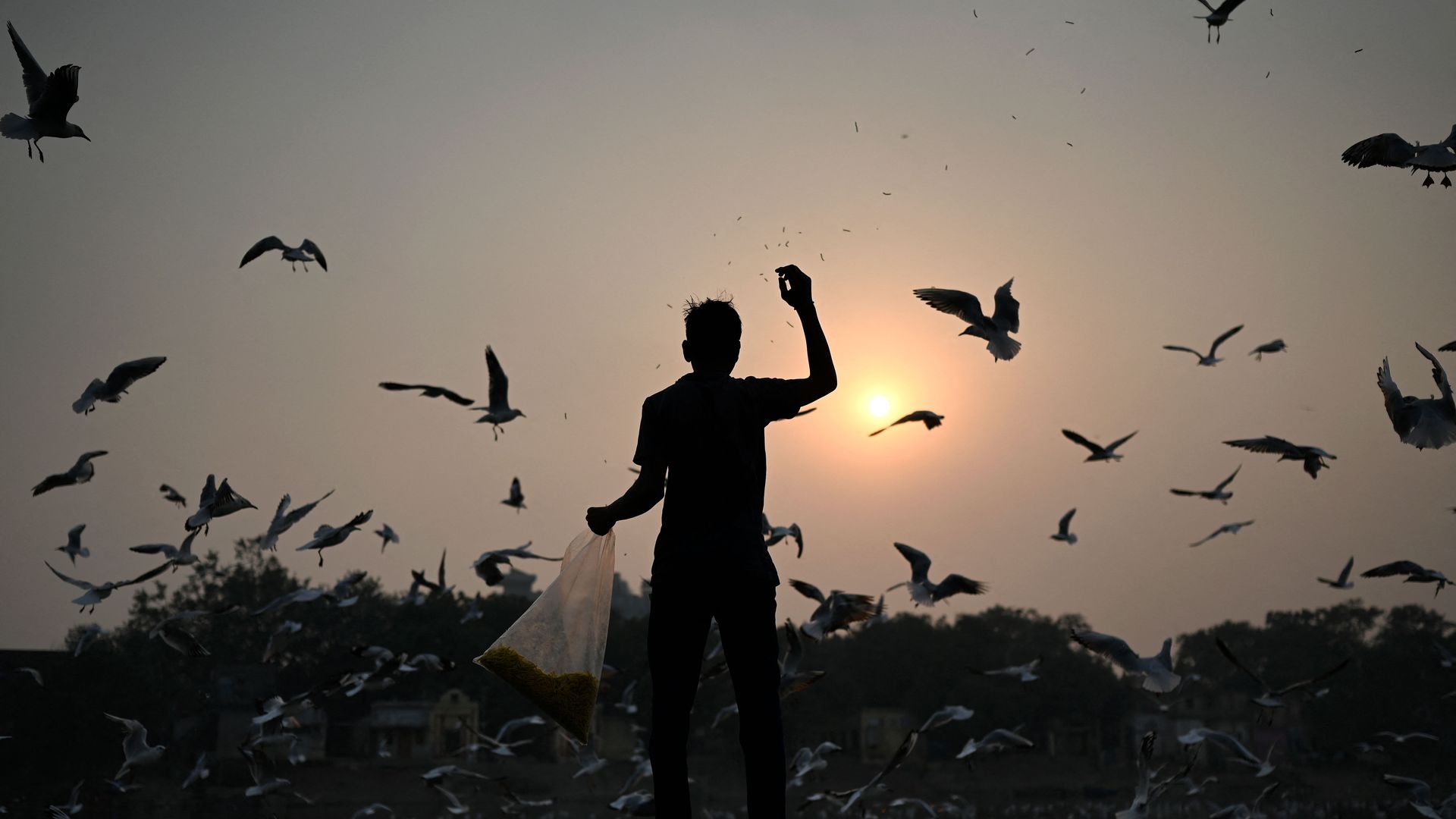 | | | Feeding the gulls in New Delhi. Photo: Sajjad Hussain/AFP via Getty Images | | | - UN reports: Global warming to melt major glaciers by 2050, including Yosemite's; Europe is the world's fastest warming continent
- Zelensky: Russia has damaged 40% of Ukraine's energy infrastructure
- Russia says it will rejoin Ukraine grain shipment deal
- Bank of England delivers huge rate hike as U.K. braces for recession
- Latin America leftists renew push for shared currency, but chances are slim
- Chinese experts arrive in Taiwan to help treat beloved panda
- Brittney Griner met with U.S. embassy officials
Quoted: "We are told she's doing as well as can be expected under the circumstances." — White House press secretary Karine Jean-Pierre today on basketball star Brittney Griner, who is in a Russian prison |     | | | | | | A message from GLOBAL X ETFS | | Build a greener investment portfolio | | | 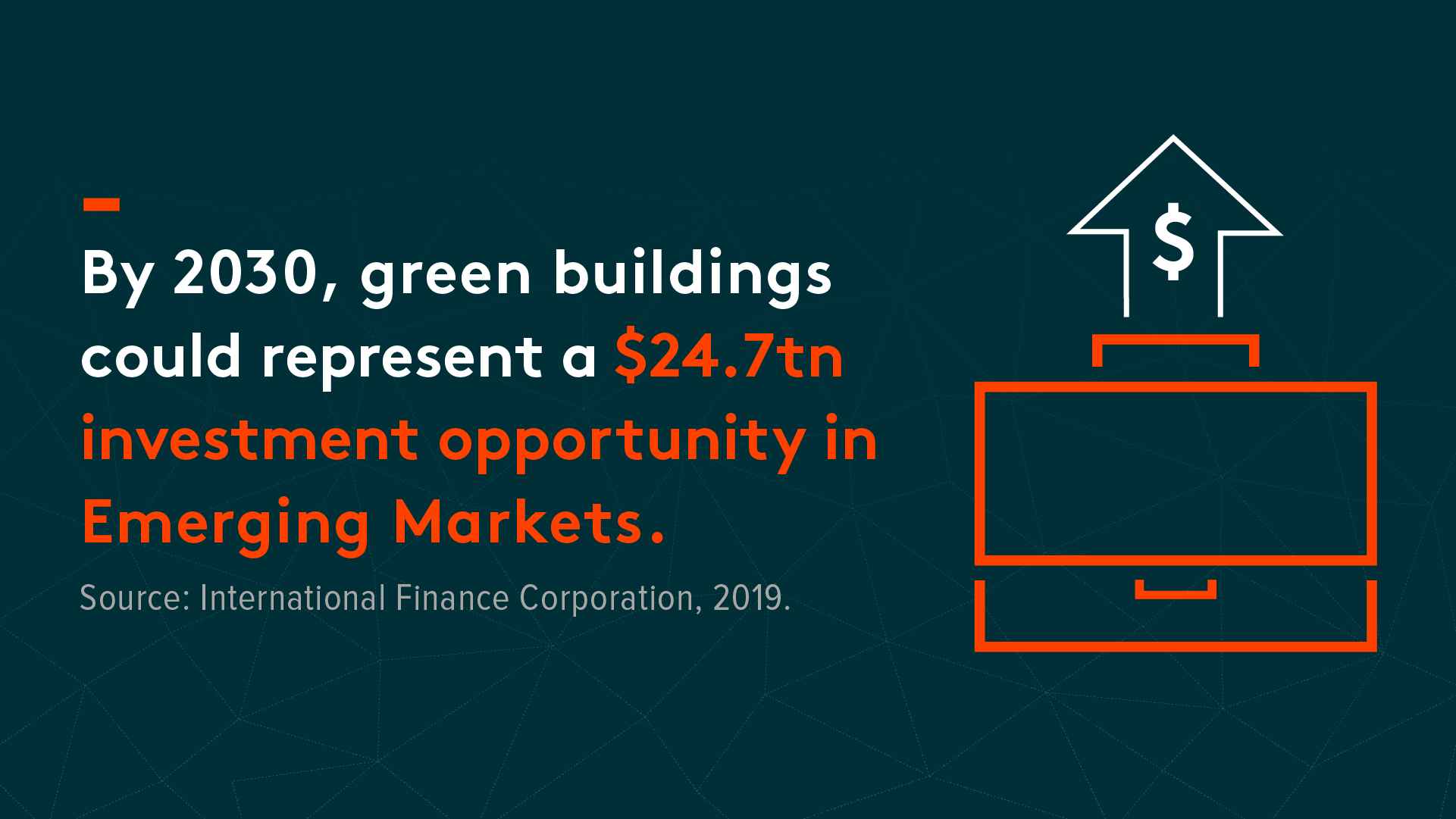 | | | | Government policies and private sector commitments to combat climate change are driving demand for more sustainable buildings. We recently explored the long-term investment case for companies involved in the development, management and technology powering green buildings. Learn more. | | | | Answers: Eswatini, Lesotho, New Zealand and Uruguay. |  | | Are you a fan of this email format? It's called Smart Brevity®. Over 300 orgs use it — in a tool called Axios HQ — to drive productivity with clearer workplace communications. | | | | | | Axios thanks our partners for supporting our newsletters. If you're interested in advertising, learn more here.
Sponsorship has no influence on editorial content. Axios, 3100 Clarendon Blvd, Arlington VA 22201 | | | You received this email because you signed up for newsletters from Axios.
Change your preferences or unsubscribe here. | | | Was this email forwarded to you?
Sign up now to get Axios in your inbox. | | | | Follow Axios on social media:    | | | | | |













No comments:
Post a Comment